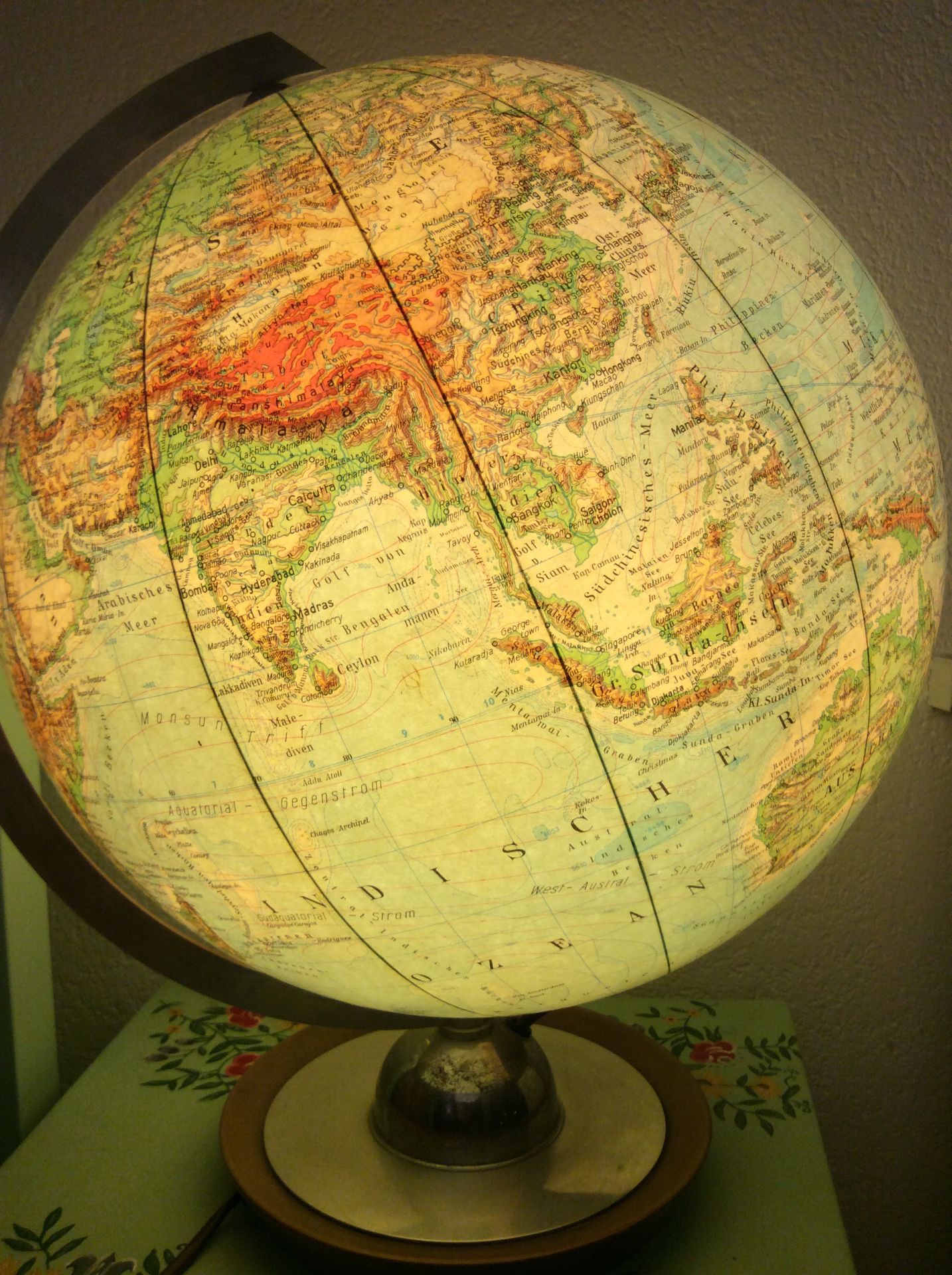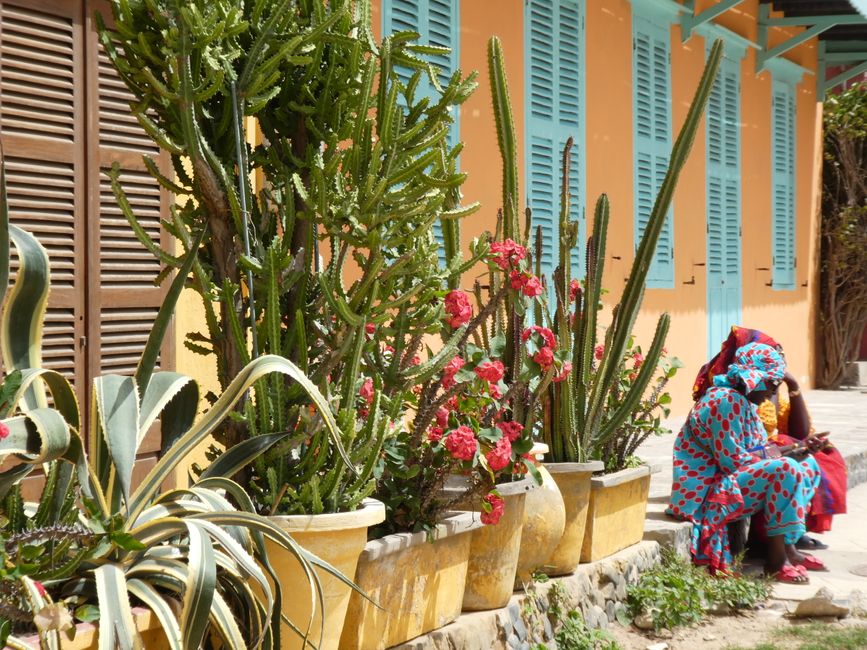Indonesia: Welcome to Sumatra - visiting the Orangutans
Objavljeno: 31.01.2019
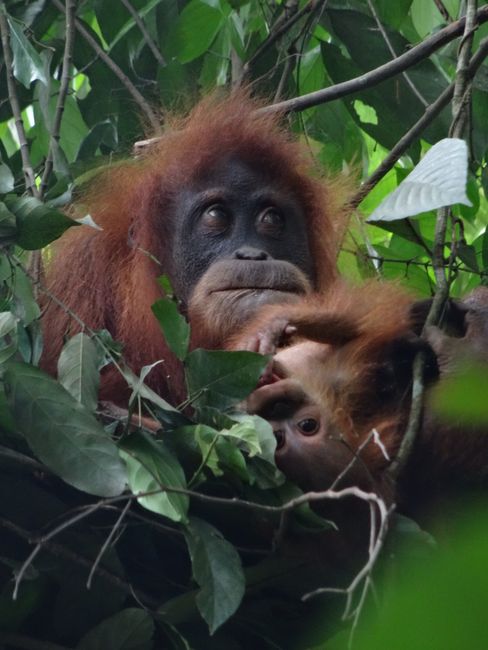
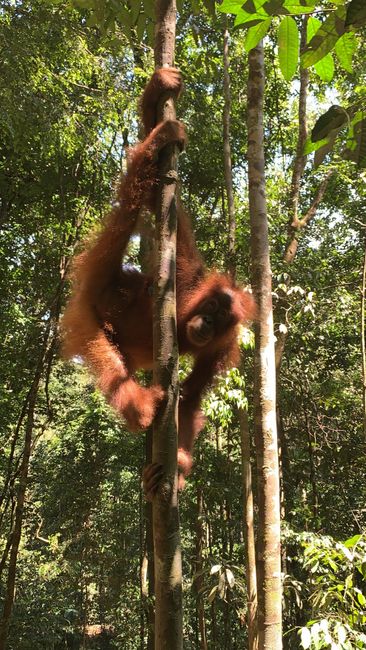
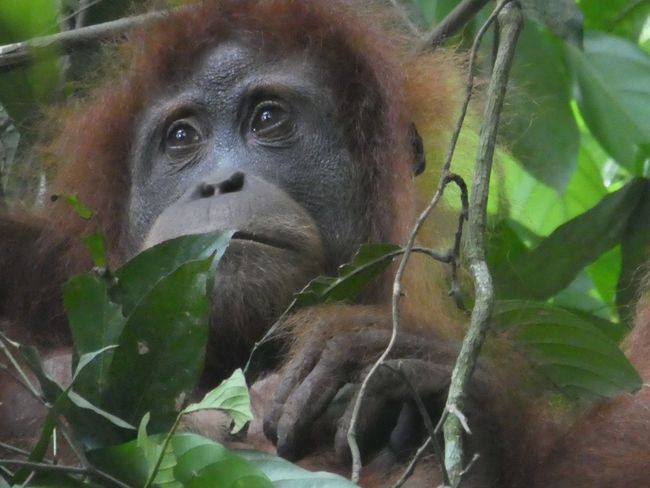
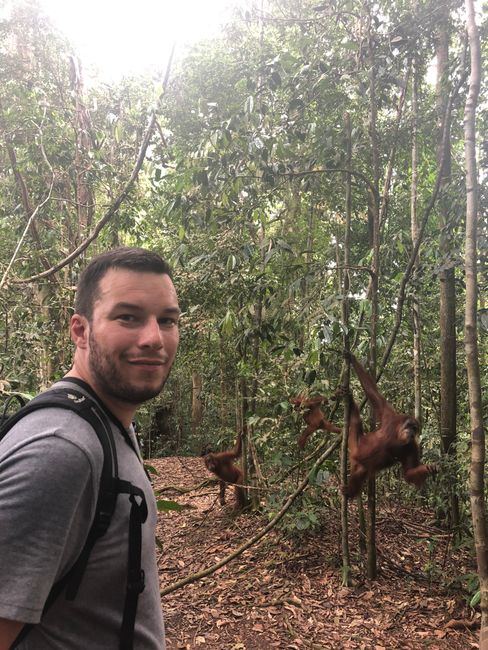
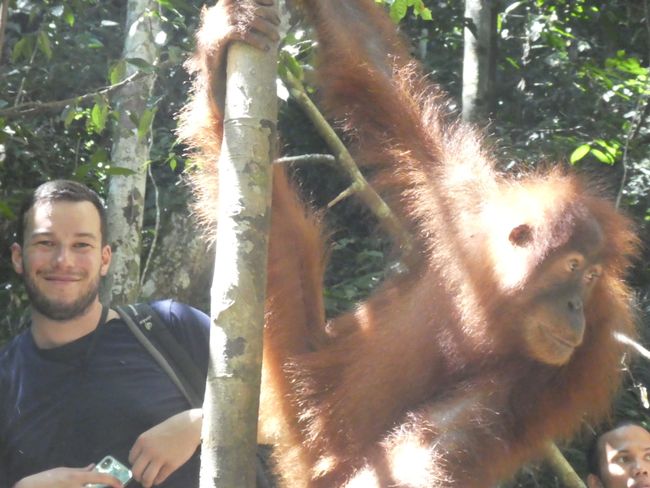
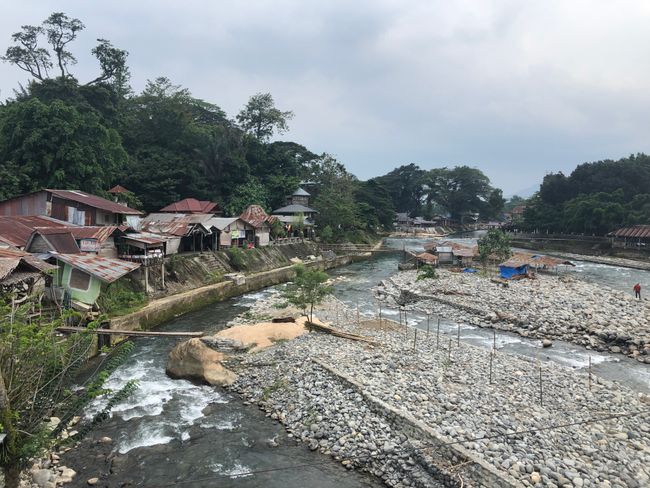
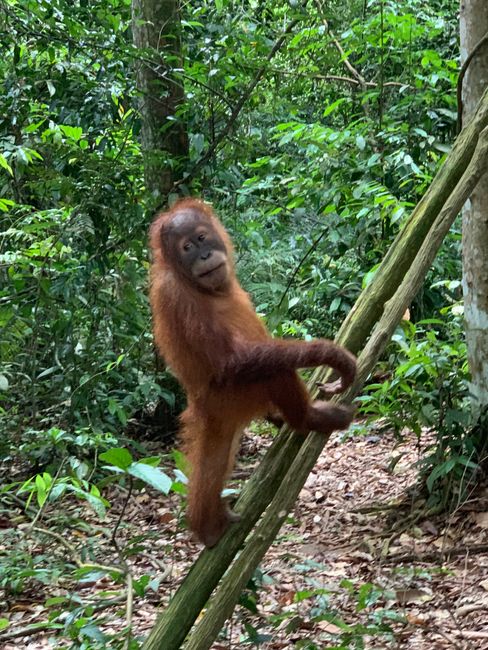
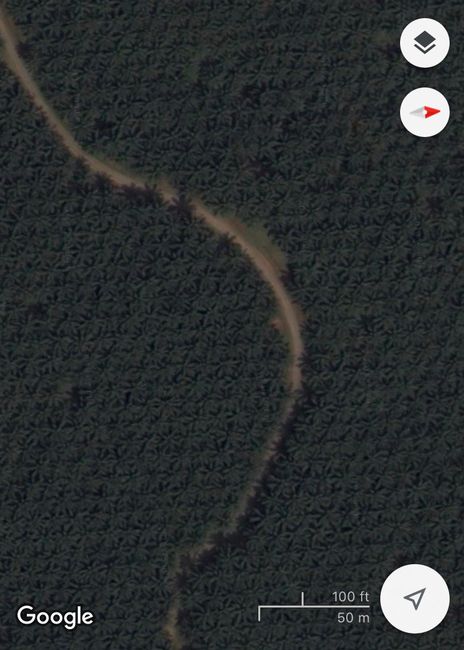
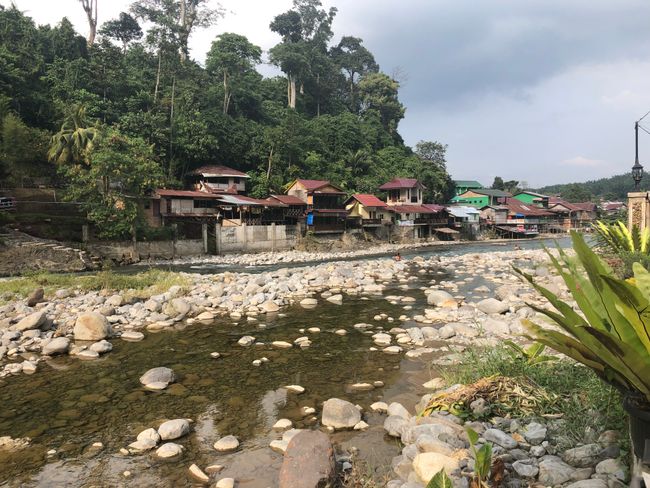
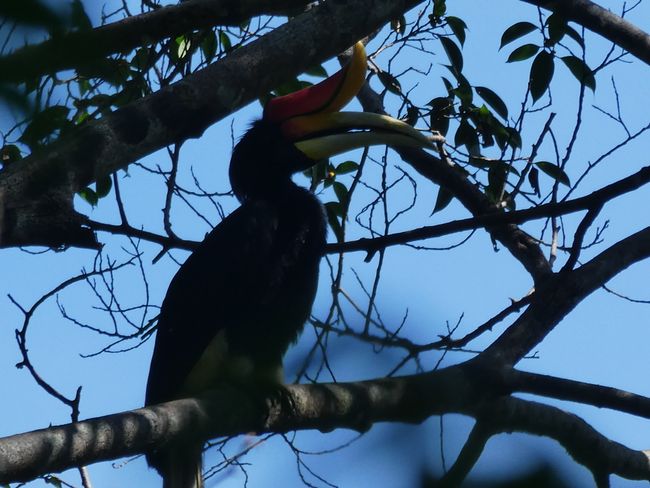
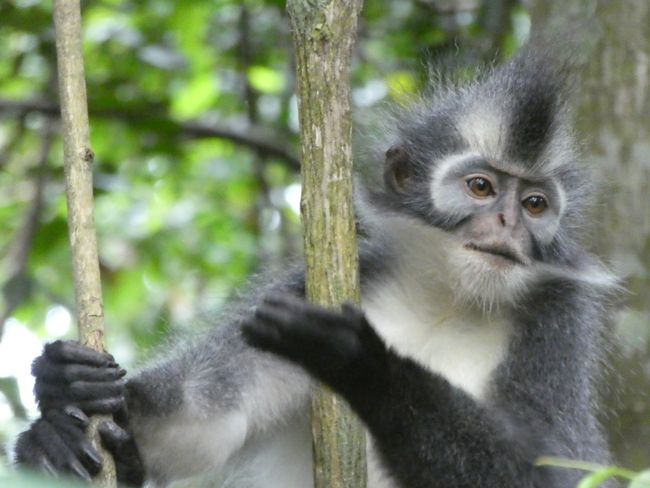
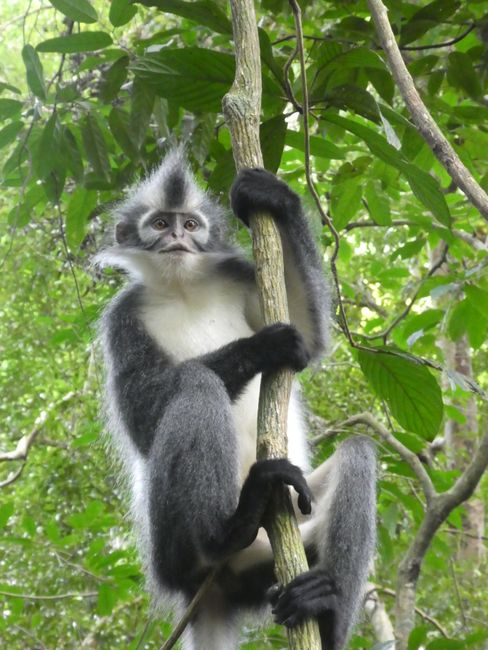
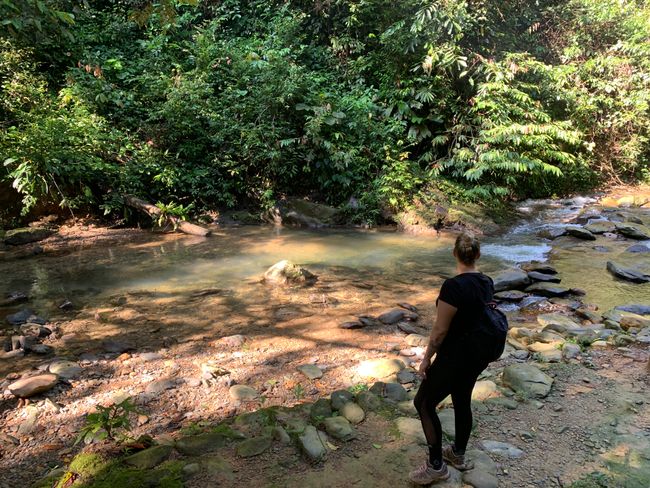
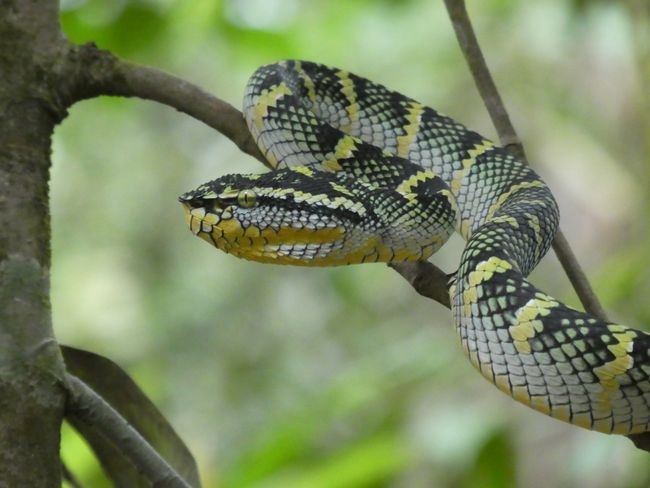
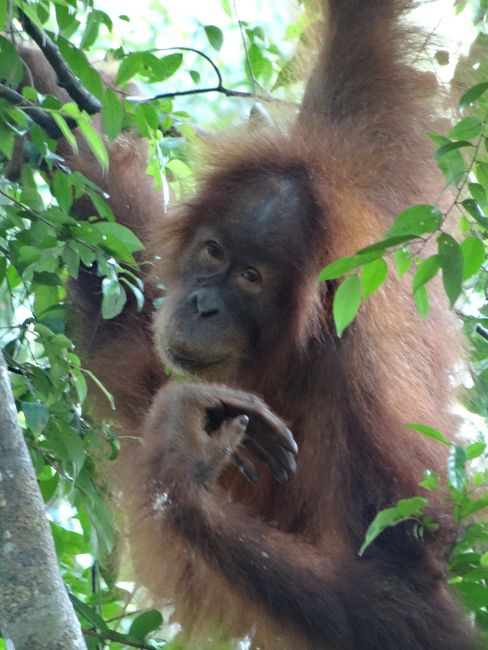
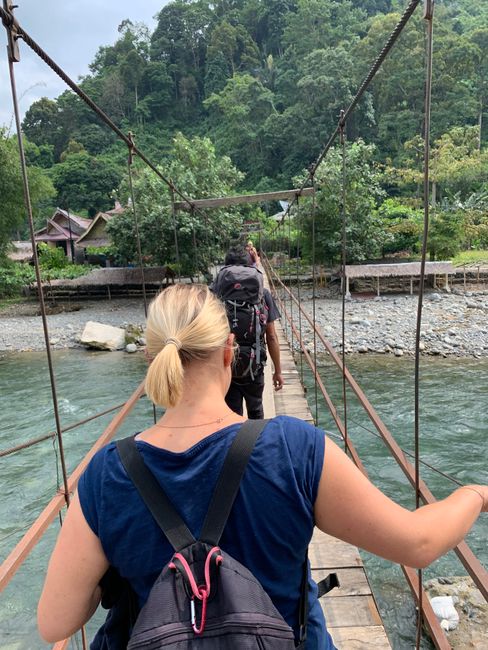
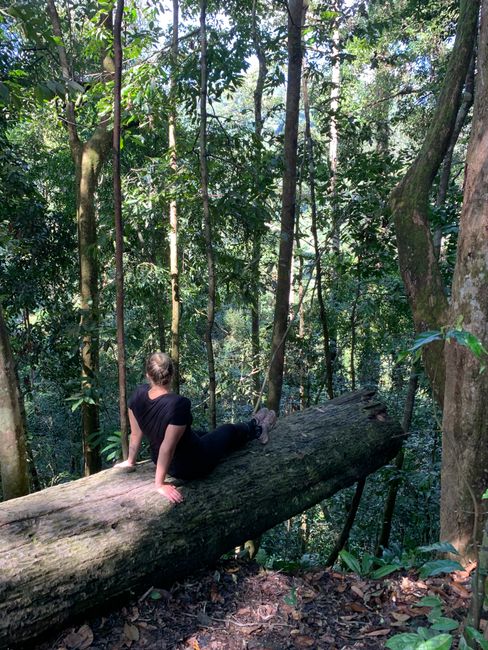
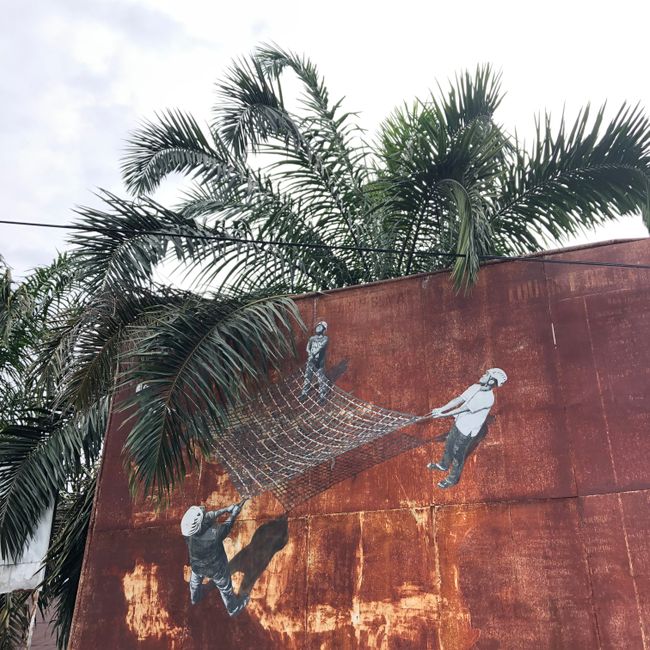
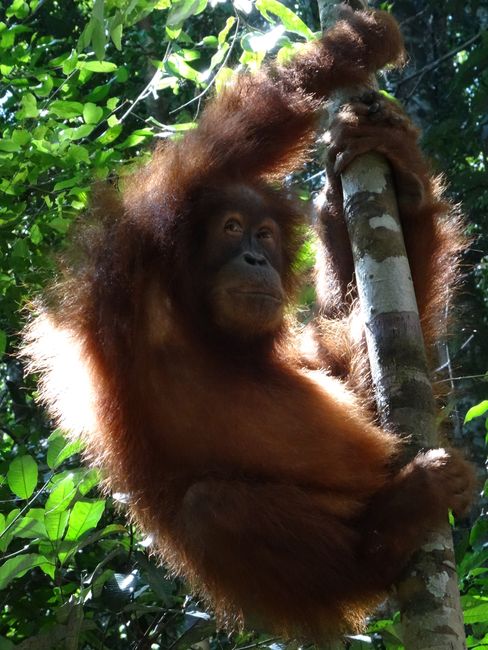
Naročite se na glasilo
It is still hot, but the sun has left us. Because now we have arrived in the rainy season! And actually, for the first time since the beginning of our trip, we experience a cloudy sky and later also rain showers. We arrive in Sumatra and are picked up by a taxi. Our journey takes us to the jungle, to the village of Bukit Lawang, and we already read in our travel guide in advance that the journey takes four hours - which we can hardly believe, because it's only about 120 kilometers! Later we realize why. The traffic around the city of Medan is madness! Actually, everyone drives randomly, overtaking on the left and right, and it only moves at a perceived 20 km/h. We are waiting to get out of the city and hoping that the traffic will decrease - and yes, the traffic may be a bit less, but there is no country! Actually, we drive most of the time through villages, lined up one after the other, full of people going about their daily lives, and it is fascinating to watch. Through markets, past mosques and schools, students in school uniforms on their way home from school, and no one notices us because our windows are tinted. It is really exciting to observe the villages, so we don't get bored on our journey. So we drive for four hours on these roads, occasionally it becomes a bumpy road full of potholes, then the road is good again, then suddenly unpaved. When we take a break and go to the toilet, what will happen then, what will happen more often to us in Indonesia: photo session! Do you want to feel like a real star asked by strangers on the street for a photo together? Go to Indonesia! Since it seems to bring true joy to the people - and we don't mind, we are happy to pose for 1-2 photos. Why not. After about two-thirds of the way, our route changes a lot. The villages continue to pass by, but now interrupted by gigantic palm oil plantations. People live with or often in the plantations, and the size of the plantations is gigantic. They appear threatening, standing there silently, row by row, with their deep dark green palm fans and mossy ground. When comparing the impenetrable jungle with these lined-up plantations, it quickly becomes clear: there is no life possible for animals here.
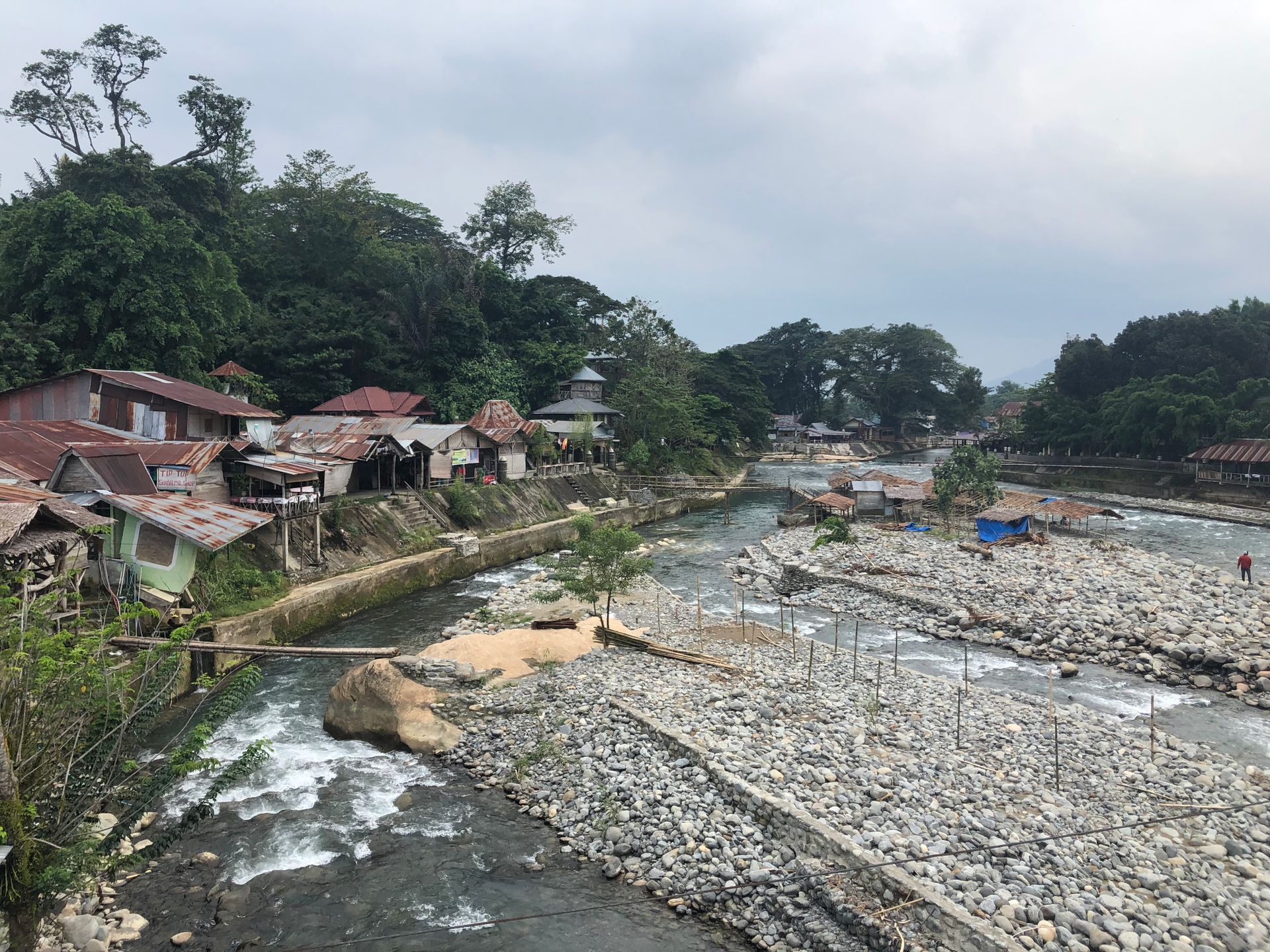
When checking in, we are reminded to always keep the doors of our balcony closed and not to store food on the balcony, otherwise the monkeys will come - and we can already see them, some macaques jumping over the corrugated iron roofs of the village. They are also called "troublemakers" here, because macaques are cheeky monkeys. The next morning, our tour into the jungle begins. Our guide Eddie explains the situation to us beforehand: there used to be an orangutan rehabilitation center here operated by the WWF, where previously captive apes were reintroduced to the wilderness. This has also been successful, but there is an orangutan that is known here, namely the female ape Minah - the only ape we would feed on the way, because Minah is clever and demands a "toll" from tourists when they come through her "territory". And otherwise... she bites - not only the guides, but also tourists. As a deterrent, our guide shows us the scar on his ankle, bite marks from Minah. Ok. And then we start. As with any encounter with wild or semi-wild animals, we know that we have no guarantee of seeing orangutans at all. But we are very lucky! Just ten minutes after the start of the hike, we meet four orangutans, including some babies! We are so excited that we can hardly hold our phones the right way, because the orangutans are so close to us, only one or two meters away. The animals move leisurely and slowly through the trees, because they do not have a long tail to balance like other monkeys, and therefore they cannot hop far through the trees. Instead, they have long, long arms with which they slowly swing through the trees.
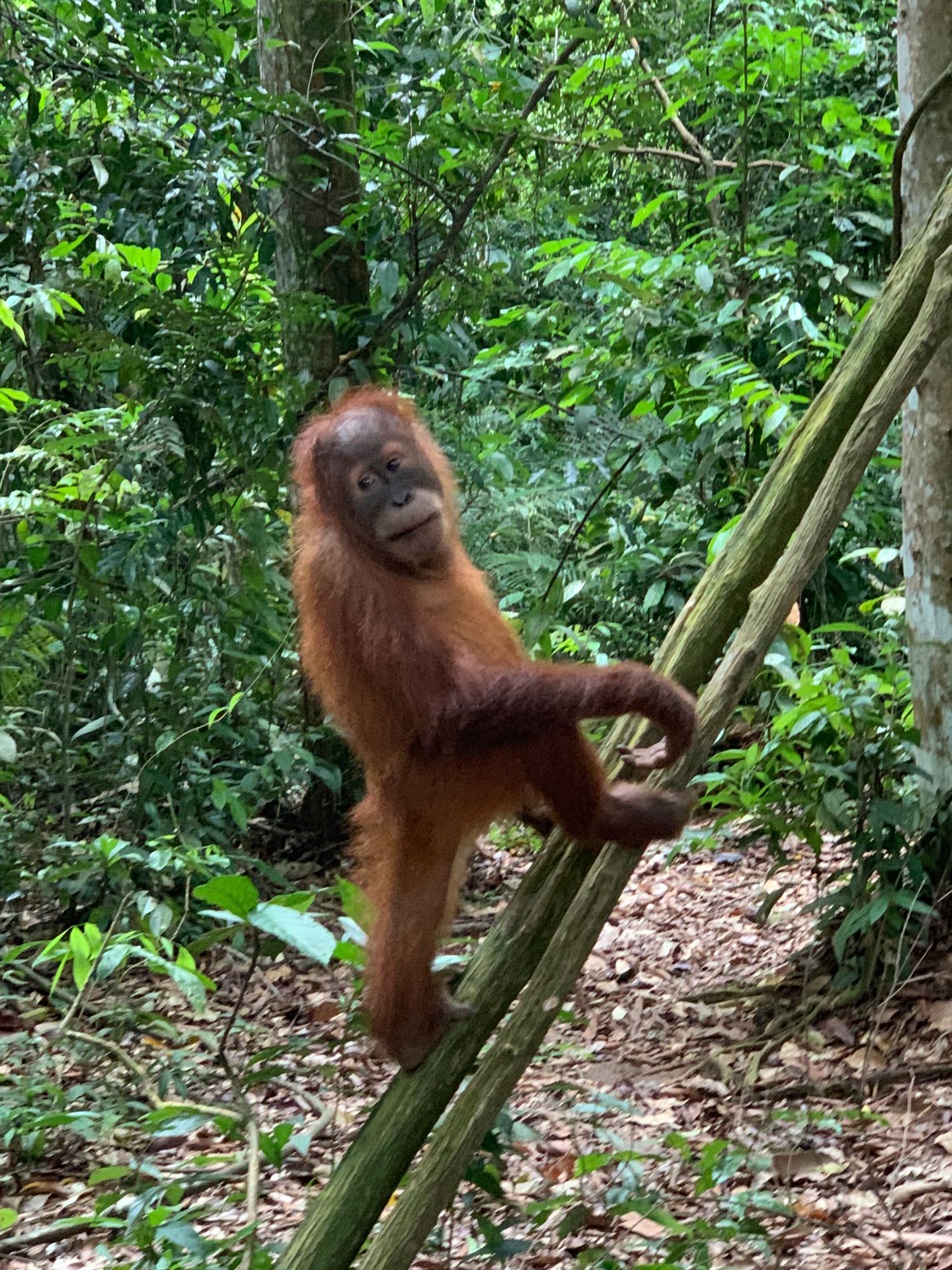
We also see "nests" on our way, which the orangutans build to spend the night in. Our path goes up and down, is very sweaty, because it is steep and we climb over roots, fallen trees, slippery slopes, sometimes we almost climb and we are sweaty from the effort. We often hold on tight, but be careful: if it's a tree, you have a good grip; if it's a vine, you swing; if it has barbed thorns (Claudio is hit on the forehead), then you may need to be rescued. The jungle is beautiful, lush green, plants upon plants, high humidity, the smell and the sounds of the jungle. We hike for five hours and encounter nine different orangutans. We also meet the feared Minah, and it is quite uncomfortable for us to see how even the guides are afraid of the animal. But everything goes well. We also have the incredible luck to see a fresh orangutan mother with her little baby - the guide estimates it to be just under six months old.
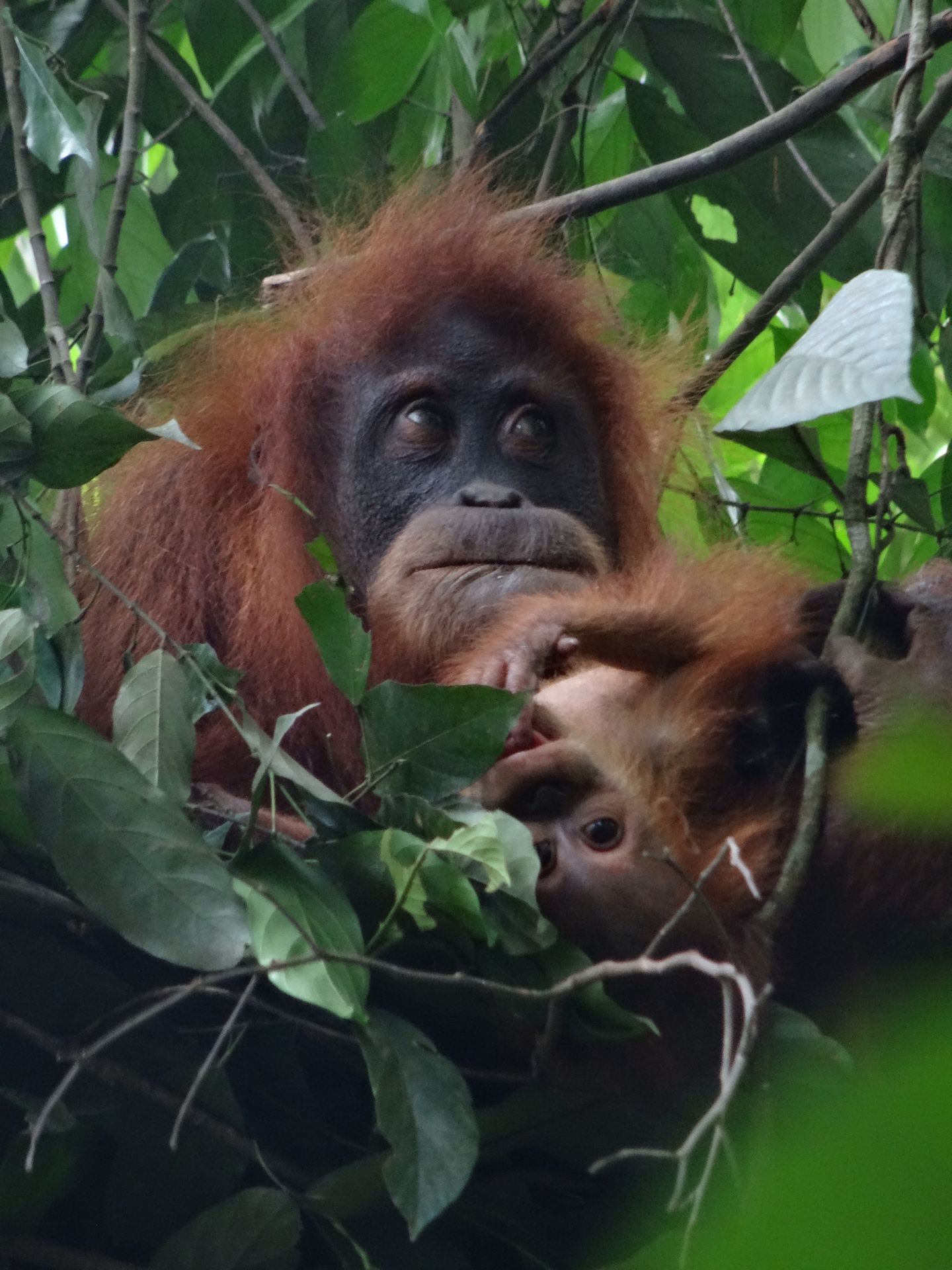
In the afternoon, we reach a small river and set up camp for the night: a tent covered by a small bamboo roof, covered with a plastic tarp. And it's time, because our feet hurt and our strength is fading. Time to swim and rest by the river.
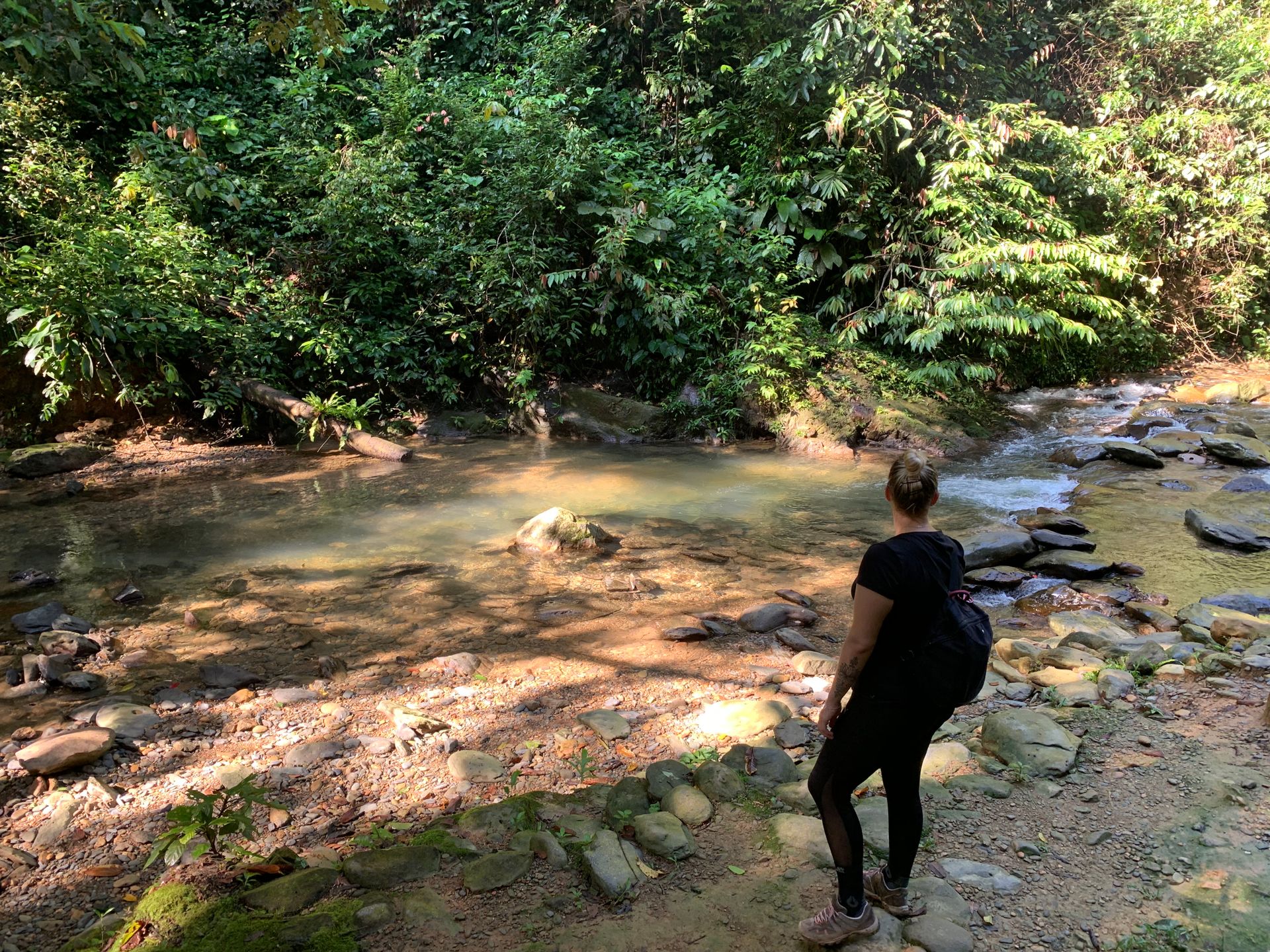
Shortly after we were in the water, we spot a "Monitor Lizard", a quite large (about one meter long) lizard swimming through the water. Good timing that we are now on land. In the late evening, the rain shower begins. The rain pounds heavily on the jungle for what feels like half the night. Thanks to the roof, we stay dry and are surprised the next morning that the paths are not much muddier and more slippery than the day before. On the second day of trekking, we are on the way for another two hours - the highlight is a very close encounter with a young orangutan lady who even accompanies us for a while on the way and comes very close to us. Amazing.

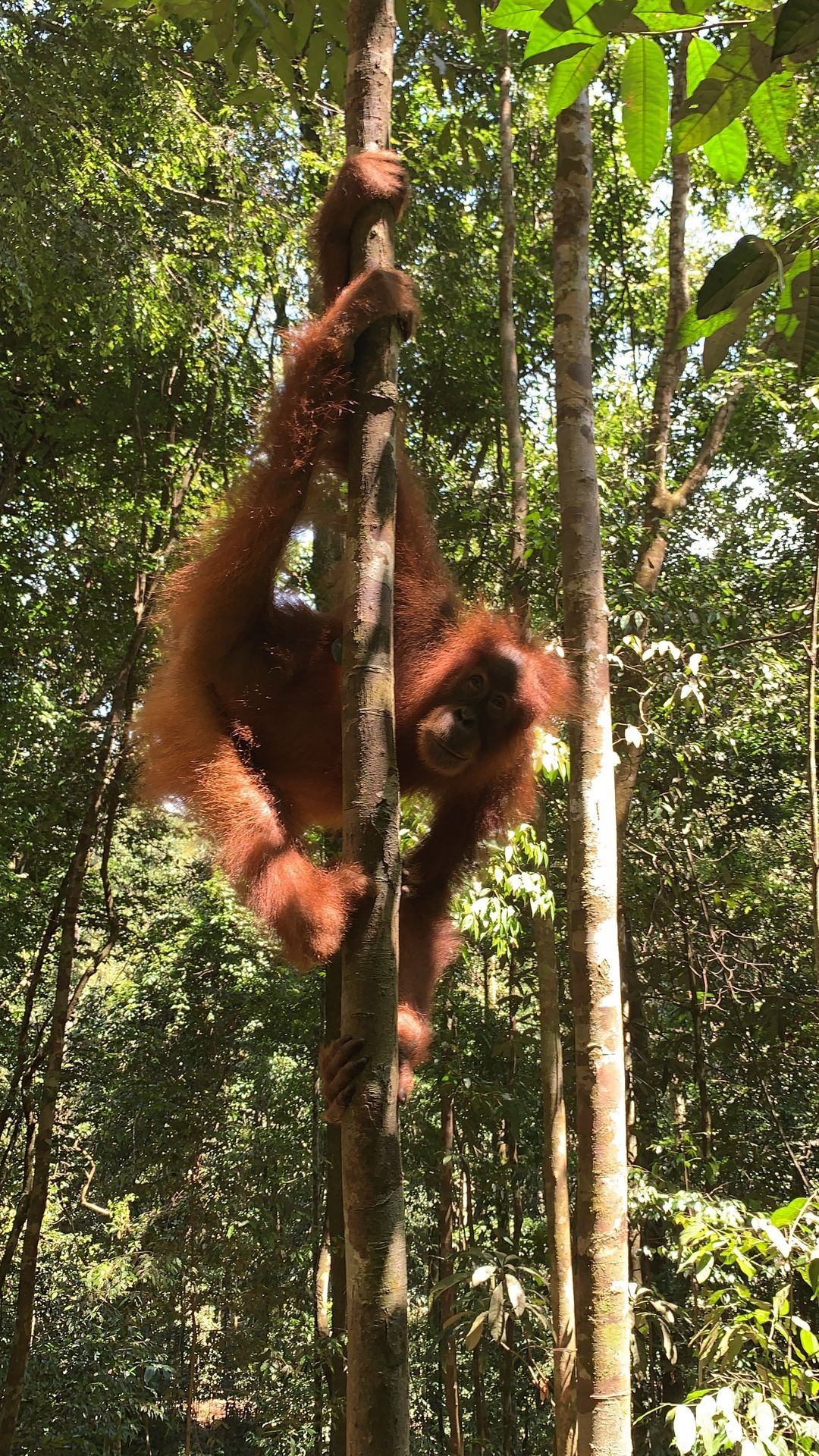
We make our way back in a funny way: because we come to the large river that flows to Bukit Lawang and are allowed to sit in huge rubber tires: and off we go rafting back to the village! After arriving at the hotel, we enjoy the shower and a soft bed and then the monsoon rain arrives, it rains for hours in the afternoon - thanks to Petrus for perfect weather timing and a dry hike! Our two-day trekking tour leaves us with many beautiful impressions and incredibly great encounters with the animals of the jungle, not only with the orangutans, but also with macaques, Thomas langurs (great, black and white monkeys with a punk hairstyle that only exist in Sumatra), giant ants and termites, snakes, and hornbill birds. After getting to know the jungle with its incredible diversity and the beautiful orangutans, it is even harder for us to drive through the palm oil plantations and we think about it for a long time.
Naročite se na glasilo
Odgovori
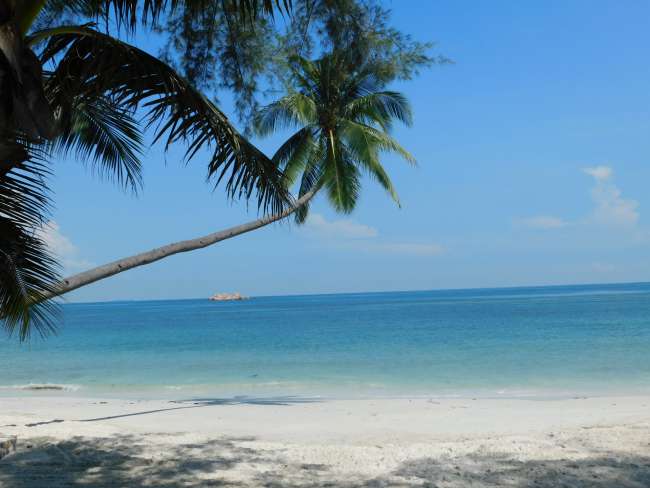
Poročila o potovanjih Indonezija
